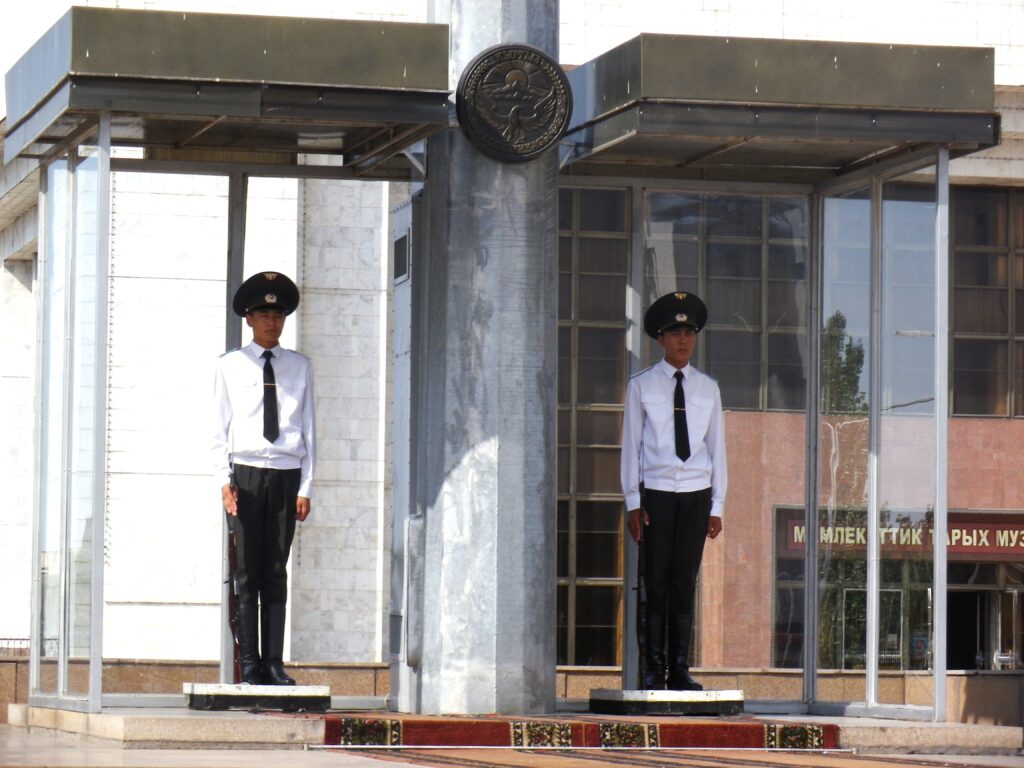Putin in Kazakhstan: Language Diplomacy, Treaty Fine Print and a Hack
Geopolitical tensions, finding common ground on oil and gas transportation and deliveries and Russia’s hopes of beating out rivals to build Kazakhstan´s first nuclear power plant. These were some of the big ticket themes framing Russian President Vladimir Putin’s trip to the Central Asian nation last week. The Times of Central Asia looks at a few other things that happened on the sidelines: A Tale of Two Languages “Kazakhstan is practically a Russian-speaking country, which you have probably had a chance to see for yourself.” Putin was extolling close ties between Russia and Kazakhstan when he made that remark to journalists in Astana last week. But the comment also drew attention to how Kazakhstan uses the Kazakh language to express national identity and independence from a past controlled by Moscow. In November 2023, during an earlier visit by Putin to Astana, Kazakh President Kassym-Jomart Tokayev spoke in Kazakh rather than Russian, causing senior Russian officials to reach somewhat hurriedly for their earpieces to get the translation. While Russia and Kazakhstan share a long land border and are bound by deep economic and security ties, Tokayev’s semantic switch seemed to be a reminder that Kazakhstan, a former Soviet republic and Russian imperial territory, would follow its own path. Last week, both leaders went out of their way to emphasize linguistic harmony, even if tensions sometimes emerge over Kazakhstan’s increasing promotion of the Kazakh language. There is a significant ethnic Russian minority living in Kazakhstan. “One third of schoolchildren in our country are educated in Russian. We attach special importance to this issue. It is for this reason that I proposed the creation of the International Russian Language Organization,” Tokayev said. Putin thanked Tokayev for backing the use of the Russian language, “widely and freely,” in Kazakhstan. He said there are plans to open three Russian language schools in Kazakhstan, with Russian government support. Some social media posts claimed there was a diplomatic dustup between the two leaders, showing video of Putin´s “Russian-speaking country” remark followed by Tokayev speaking in Kazakh in an apparent pushback. However, the video appears to be spliced from different events. Putin is shown standing; Tokayev is seated. Furthermore, the Kremlin transcript shows that Putin made the remark at a solo news conference. That’s What It Says, But… The treaty of a regional security group that includes Russia, Kazakhstan, Kyrgyzstan, Tajikistan, Belarus and Armenia says members must provide military and other help to any member subjected to “aggression by any state or group of states.” Does that mean members of the Collective Security Treaty Organization, or CSTO, should get behind Russia in its war against Western-backed Ukraine? After all, Putin says Russia is a target of Ukrainian and Western aggression, even if some dispute the assertion because he launched a full-scale invasion of Ukraine in 2022. Putin was asked the question on Thursday after a state visit to Kazakhstan and a meeting of the regional security group in Astana. Each security group member “stands ready to act in accordance with...




